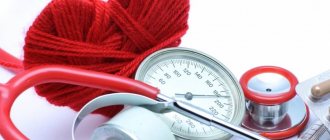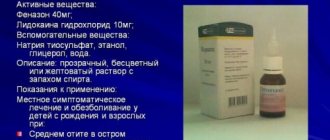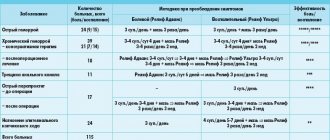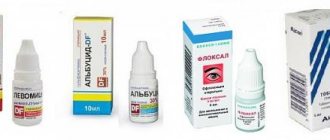Why is it so important to reduce blood viscosity?
The mechanism of development of this pathological process is quite simple. As blood viscosity increases, its movement through the vessels is disrupted.
Slow blood flow can lead to the development of atherosclerosis, varicose veins and hemorrhoids. In addition, too viscous blood can lead to the development of liver, kidney and heart failure. The most terrible and dangerous development of events may be pulmonary embolism, stroke and heart attack. These pathological conditions are caused by the formation of blood clots in vital vessels. Quite often, such conditions lead to the death of the patient, especially if assistance is not provided in the first hours. Often the cause of death is cardiac arrest or blockage of the pulmonary arteries.
what is important to consider about blood viscosity
Acetylsalicylic acid
Acetylsalicylic acid is the most inexpensive but effective drug that can be bought without a prescription. The medicine is prescribed to prevent blood clots. Acetylsalicylic acid is used to relieve pain, reduce fever and treat inflammatory processes. The drug is effective for varicose veins, headaches, pericarditis, arthritis, Kawasaki disease, fever, Kawasaki disease, as well as for the prevention of heart attacks and strokes. The price of acetylsalicylic acid is about 15 rubles for 20 tablets.
Acetylsalicylic acid
OJSC Pharmstandard-Leksredstva, Russia
Rheumatism, rheumatoid arthritis, infectious-allergic myocarditis;
fever in infectious and inflammatory diseases; pain syndrome of weak and moderate intensity of various origins (including neuralgia, myalgia, headache); prevention of thrombosis and embolism; primary and secondary prevention of myocardial infarction; prevention of ischemic cerebrovascular accidents. In clinical immunology and allergology: in gradually increasing doses for long-term “aspirin” desensitization and the formation of stable tolerance to NSAIDs in patients with “aspirin” AS. from 4
1767
- Like
- Write a review
What needs to be eaten in order for blood viscosity to be normal?
- Vitamins. It is very important that the body has enough vitamins A, C, E, B. It is these elements that allow you to normalize blood flow, the amount of lipids, and glucose in the blood. But there is another side to the coin. Excessive intake of vitamin C may cause an increase in blood viscosity. This is due to the fact that ascorbic acid reduces potassium in the blood, which leads to disruption of water-salt metabolism. There is an increase in urination, less fluid, and the blood becomes more viscous.
- Water-salt balance. It is also important that the body has enough minerals and salts. Last but not least is water balance.
- Amino acids. To normalize metabolism, it is necessary to consume amino acids. Taurine plays an important role in this process.
- Phytoncides. They have a great effect on the functioning of the intestines and maintain the correct balance in it.
- Cellulose. A huge amount of fiber is found in vegetables and fruits. It is important that they are fresh and not subject to heat treatment. It is fiber that promotes water retention in the body.
To lower blood viscosity , it is not always necessary to take medications. You can reduce it by changing your diet. Next, we will take a closer look at the list of products that can solve this problem without the use of medications.
To structure the article, we divided all these products into five main groups.
Fruits and vegetables
According to experts, it is fruits and vegetables that can optimize the functioning of the heart and blood vessels. The problem that people with high blood viscosity face is low vascular tone. The following list of products will help you cope with this:
- Lemons. Of course, along with lemons, other citrus fruits will have the same effect, because they also contain a lot of ascorbic acid and vitamin K. They normalize fat metabolism in the body and do not allow harmful fats to accumulate. And they, in turn, through the development of vascular atherosclerosis, can lead to the development of thrombosis. You should not drink pure lemon juice. After all, it has a rather aggressive effect on the gastrointestinal mucosa. Before use, you should dilute it in water. You can consume no more than 100 grams of lemon juice per day in diluted form.
- Pomegranate. Everyone knows that if heart pathology develops, you need to drink pomegranate juice. It also contains a lot of ascorbic acid, but that's not all. It contains vitamin P and B6 and a number of amino acids. They are able to optimize heart function, give normal tone to blood vessels and help lower blood pressure. Women over 50 should pay attention to this product. The pulp and zest contain a considerable amount of vitamin K. The variety of pomegranate dishes is amazing. Therefore, anyone will find a convenient form to receive this useful product.
- Ginger. It contains one of the largest amounts of vitamin B, which is important for the body. It is able to remain in the composition of ginger, despite drying, cooking and other thermal processes. It is also rich in selenium, zinc, copper, manganese and iron. It is these elements that help normalize the level of hemoglobin and red blood cells. Experts recommend drinking ginger tea in order to remove toxins and toxic substances from the body.
- Garlic. Rich in phytoncides, which are very important for blood vessels and the heart. But it also contains many different vitamins and selenium. These substances help reduce blood viscosity. Garlic plays an important role in liver detoxification.
- Beet. Due to its fibrous and high fiber content, it is able to retain water in the body. Don’t worry about these beneficial properties disappearing after cooking. In no case, on the contrary, fiber only activates its properties under the influence of temperature. In addition, beets have a pleasant sweet taste, so they are often used in salads, side dishes and even desserts.
what to eat to reduce blood viscosity
Berries
The berries contain a lot of amino acids and vitamin C. Their consumption leads to optimization of the breakdown of lipids by the liver. There are four main berries that can improve the functioning of blood vessels and the heart. These include:
- Kalina. It has many essential oils that promote normal functioning of the heart and immune system. But in this case, you should not resort to drying the berries. After all, only fresh viburnum contains these nutrients.
- Cranberry. Very rich in vitamins B, K and PP. They optimize the functioning of the human endocrine system. And if you consider that it is closely related to the immune system, it has a double effect on the body. These two most important systems in the human body will allow you to regulate metabolism and thereby avoid the development of metabolic processes in the body.
- Black currant. An invaluable bush in the countryside, because everything in it is useful: from berries to leaves. It contains a colossal amount of ascorbic acid, which is actively involved in lipid metabolism. To completely saturate your body with vitamin C, you need to eat only 30 berries a day. But that's not all. Thanks to the large number of useful microelements in the composition, namely copper and lead, muscles are strengthened. This leads to improved vascular tone.
- Mulberry. Perhaps it is the most useful of all the berries presented that can thin the blood. This is especially true for black mulberry, which contains a lot of phytoncides and essential oil.
berries that reduce blood viscosity
Drink
There are many studies that have shown the benefits of various herbs, teas and infusions to combat excessive blood viscosity, and in itself, drinking plenty of fluids and proper water balance can help a person with such a problem. The healthiest drinks include:
- Green tea. It is famous for its high amount of antioxidants. This is necessary to oxidize cells and reduce the risk of thrombosis and lysis of red blood cells. And the mood after green tea will be much better, because it contains substances that stimulate the production of the hormone of happiness.
- Cocoa. To the delight of lovers of chocolate and other cocoa products, it is recognized that daily consumption of 30 grams of cocoa will have a beneficial effect on the condition of the heart and blood vessels. This happens because cocoa actively helps absorb carbohydrates and lipids.
- Fresh and natural juice. To make it as healthy as possible, you need to leave a lot of pulp in the juice. After all, it contains a lot of fiber, vitamin B and C. As for the choice of juice, it is best to take apple, apricot, pomegranate juice. It is worth considering the fact that the content of nutrients in canned juice is much less than in fresh juice.
fresh juices with pulp to reduce blood viscosity
In addition to the above products, there are others that also have a beneficial effect on reducing blood viscosity. Their mechanism of action is that they reduce blood alkalinity, which leads to the prevention of thrombosis. These include:
- Seeds and nuts. They contain a large amount of essential oils and resins. These substances activate the normal metabolism of proteins, fats and carbohydrates. But not all nuts are healthy, especially when it comes to peanuts. After all, it contains a lot of complex fats and proteins. But pistachios and walnuts are 100% healthy. They are high in omega fats. As for seeds, it is useful to eat poppy seeds, dill, sunflowers and peppers.
- Dried fruits. It would seem that fresh berries and fruits are considered to be the healthiest. But it is worth considering the fact that when properly dried, the berries retain a lot of fructose and fiber. Despite these beneficial properties, you should not eat too much of them. This is because excessive consumption of dried fruits can lead to the development of hypervitaminosis C and increased blood sugar levels. The maximum daily dose of dried fruits should be two tablespoons.
- Porridge. But not all of it. It is mainly worth consuming cereals based on cereals, namely buckwheat, oats and wheat. But you should not overuse rice, because it contains a lot of starch. Of course, taking into account the above information, porridge with dried fruits will be a real combo in terms of usefulness. This combination normalizes the functioning of the gastrointestinal tract and fills the body with the necessary vitamins and microelements.
- Omega 3 and 6 fatty acids. These acids are abundant in fatty fish, oils and nuts. This is a great way to improve the performance of brain cells by improving the condition of cell membranes. This avoids the development of erythrocyte lysis and thrombosis. A cost-effective option for obtaining omega acids is to consume fish oil.
- Linseed oil. This is a great choice for vegans who don't eat fish. It is worth considering the fact that it should be consumed exclusively in its raw form. When frying, all the beneficial substances disappear.
- Honey. It is very important to eat at least a small amount of bee products. After all, they contain many useful trace elements, metals and salts. Regarding carbohydrates, in honey they are represented by a small amount of fructose. Propolis contains a lot of phytoncides and oils, which have a positive effect on the immune system. Therefore, it is not in vain that everyone always drinks tea with honey when suffering from respiratory diseases.
- Spices, including turmeric. Turmeric contains an antioxidant that allows the blood to be better saturated with oxygen and maintains the heart in normal tone. The same effect is found in saffron, basil, thyme, etc.
- Apple cider vinegar. It has a huge range of organic-based acids. They can lead to optimization of the gastrointestinal tract and break down lipids. Grape vinegar affects the body in the same way, but you should be careful with it, because it contains more alkali, and this can be very harmful to a person with gastrointestinal pathology.
- Soda. Can increase the alkalinity of blood plasma. This helps thin the blood and prevent the formation of blood clots. Despite such a good effect of soda on the body and blood condition, you should not abuse it. This is because it contains a lot of sodium, which has a toxic effect on the nervous system.
- Ginkgo biloba. This is a universal activator of the cardiovascular system. It is able to normalize blood pressure. But you don’t need to drink a lot of ginkgo biloba, because it can cause energy deficiency. You should consume no more than 15 grams.
- Artichoke. Able to normalize the balance of water and electrolytes. In addition, it contains a huge amount of vitamin K, which is simply necessary for normal heart function. It is worth noting another advantage of the artichoke, because all the beneficial substances in it can be preserved even during heat treatment and preservation.
- Kalanchoe. It contains a lot of resinous essential oils, which give it a viscosity and sticky consistency. This plant is often used in folk medicine to treat heart pathologies, optimize vascular tone and reduce the amount of toxins in the body.
nuts for blood thinning
You need to be very careful when consuming Kalanchoe and aloe, because they are strong allergens. A test should be carried out before any use of these substances. That is, apply a small amount of the plant and monitor the absence of pathological reactions.
10-12: Drinks
Many people know that traditional green tea and other herbs help thin the blood and lower blood pressure. What other drinks will help thin the blood and reduce the likelihood of blood clots?
Green tea
It contains almost 4 times more antioxidants than coffee. What are these microelements for? They prevent the oxidation of blood cells, reducing the likelihood of red blood cells and platelets adhesion.
In addition, green tea contains components that stimulate the production of endorphins.
For 5 more teas to reduce blood viscosity, see a separate article.
Cocoa
Cocoa is also good for the blood. Eating it in the form of chocolate, butter, and cocoa powder stimulates the body to synthesize endorphins - “joy hormones” that take part in the absorption of lipids and carbohydrates (including by the brain).
At the same time, it is enough to consume only 20–30 grams of cocoa daily to feel the positive effect on the cardiovascular system.
Natural juices
Fresh juices with pulp are especially beneficial for the cardiovascular system - they contain vitamin C, B-groups, and fiber. Citrus fruits, apple, pomegranate, apricot are some of the most useful in this regard.
Just give preference to freshly squeezed natural juice rather than various kinds of compotes or canned ones. In the latter, the content of the same vitamin C is reduced by almost 10 times.
For 7 other juices that reduce blood viscosity, see a separate article.
What foods should you exclude from your diet?
It is necessary not only to saturate your diet with healthy foods, but also to get rid of harmful foods. Of course, there are a number of foods that cannot be excluded, but you can minimize their consumption. These products include:
- Milk and dairy products. Milk contains casein, which, under the action of an enzyme, leads to their breakdown. This is a long process that is quite energy-consuming. In addition, during breakdown, a lot of fructose is formed, and this is what helps increase blood viscosity.
- Alcohol. The body perceives alcohol as poison. To remove this poison from the body, you need to spend a large amount of liquid. This is what leads to the fact that the next day after severe alcohol intoxication, severe thirst may develop. This effect of alcohol on the body leads to increased blood viscosity. Moreover, this phenomenon is observed even when drinking alcohol in small quantities. Another thing is red wine, drinking it is even healthy.
- Animal fat. Pork, sausage and beef in themselves are not harmful to the body. But with excessive consumption, fat deposition under the skin and in the blood vessels can develop. Atherosclerosis leads to blood thickening due to impaired blood flow through the vessels. In advanced cases, this leads to the development of liver and kidney failure. Of course, you cannot completely eliminate such food, but everything should be in moderation.
- Potato. Besides potatoes, you should be careful with rice. These foods contain a lot of starch, which turns into carbohydrates and leads to an increase in blood sugar. Due to this, blood viscosity increases.
- Bananas. Bananas contain a huge amount of carbohydrates. You should not eat more than two bananas a day. As for children, it will be too much for them. Athletes can afford a little more bananas in protein shakes.
what to eat to reduce blood viscosity
Clexane
The active substance of the drug is enoxaparin sodium. The main advantage of Clexane is its almost 100% bioavailability, because the drug is injected under the skin. The maximum concentration of the drug in the blood occurs after three to four hours. This anticoagulant is prescribed for the prevention and treatment of such diseases: acute heart attack, venous thrombosis and embolism. Clexane is sold by prescription and is used mainly in hospitals. If home treatment is necessary, the instructions provide step-by-step guidance. The price of Clexane is about 607 rubles per 0.6 ml.
Clexane
from 579
2965
- Like
- Write a review
conclusions
Quite often, increased blood viscosity is a result of poor nutrition. Therefore, you should be attentive to your diet and adjust it as necessary. Sometimes, simple dietary restrictions can protect a person from stroke, heart attack and other serious pathologies.
It is best to contact a specialist who will assess the person’s condition and help create a nutrition plan.
But the cause of increased blood viscosity is not always a food problem. It is often one of the pathological mechanisms of complex diseases such as diabetes or other metabolic disorders. In this case, contacting a nutritionist is not enough; you need to make an appointment with an endocrinologist. Only he will be able to correctly assess the situation and adjust the treatment.
Aegitromb
“Egithromb” is usually used to prevent complications from heart attack, stroke, arterial occlusive disease, acute coronary syndrome, angina pectoris and atrial fibrillation. The active ingredient of the drug is clopidogrel hydrosulfate. The drug binds perfectly to plasma proteins (94-98%). The therapeutic effect occurs within two hours after taking Egithromb. After 4-7 days of taking the drug, blood density indicators return to normal. The doctor may prescribe a blood thinner, depending on the severity of the disease, from several days to six months. The price of “Egitromba” is about 883 rubles for 28 tablets.
Aegitromb
Egis, Hungary
- prevention of atherothrombotic complications in adult patients with myocardial infarction (with a duration of several days to 35 days), ischemic stroke (with a duration of 7 days to 6 months) or occlusive peripheral artery disease;
— prevention of atherothrombotic complications in adult patients with acute coronary syndrome with ST segment elevation with the possibility of thrombolytic therapy (in combination with acetylsalicylic acid); - prevention of atherothrombotic complications in adult patients with acute coronary syndrome without ST segment elevation (unstable angina, myocardial infarction without Q wave), incl. in patients undergoing stenting (in combination with acetylsalicylic acid); - prevention of atherothrombotic and thromboembolic complications, including stroke, in atrial fibrillation in adult patients who have at least one risk factor for the development of vascular complications, who cannot take indirect anticoagulants and have a low risk of developing from 691
1017
- Like
- Write a review
Curl up and break away
— What happens in the body during thrombosis?
— A thrombus is a blood clot made from the protein fibrinogen.
It clogs the vessel so that blood flow stops. Most often, uniform swelling and pain develop in this area, and the skin on the limb acquires a bluish tint. This is an acute condition. It happens that a blood clot has formed and is not moving anywhere; it is fixed on the inner vascular wall, and the vessel may not be completely blocked. And it happens that this “jelly” of thrombomass completely blocks the channel. The process often does not stop there.
There are situations when a blood clot grows, breaks off and, with the blood flow, begins to rise through the veins to the heart. It passes through the heart into the pulmonary arteries and clogs them. Ultimately, pulmonary embolism develops.
Blockage of the main pulmonary trunk is the immediate cause of death. Although death may not occur immediately, there is a certain scale of risk. For example, if there is bilateral damage to the large pulmonary arteries, then the mortality rate is 15% within a month from the onset of thrombus development.
Thank God, not all thromboembolisms are fatal, but the risk is very serious. So it is important that it is diagnosed on time.
Phlebologist Alexey Petrikov.
Altapress.ru.
— How quickly does thrombosis develop?
— Thrombosis is a natural process, one of the main mechanisms of the hemostasis system. We are not surprised when a small wound heals quickly. In this way, the body regulates blood clots and bleeding. It's another matter if this process becomes pathological.
In general, a person’s blood clots within three to five minutes. However, there are no warning signs of thrombosis. A person may be at a doctor’s appointment, go out into the corridor and lose consciousness because a pulmonary embolism has occurred.
The issue of primary prevention of thrombosis has not been resolved throughout the world.
Blood.
CC0
Ginger
Like cayenne pepper, ginger contains salicylates, which studies have shown to cause a mild anticoagulant reaction without causing bleeding complications. “However, experts caution against the simultaneous use of ginger-based nutritional supplements and medications for thrombosis,” says Cristina Ruggieri. — There are scientific works proving that such a combination may not be safe. Be sure to discuss this with your doctor."
How to normalize blood circulation using folk remedies?
The most effective folk recipes at home:
- Pour a tablespoon of dandelion roots into a glass of boiling water, leave for 2 hours, strain. Take half a glass 3 times a day before meals. The course of treatment is 3 weeks.
- Collect fresh dandelion leaves, squeeze the juice out of them and take 3 tablespoons 2 times a day.
- Pour two tablespoons of blueberries into a glass of boiling water. Leave for half an hour and take 2 teaspoons three times a day along with berries.
- Grind 2 heads of garlic, pour a glass of vodka, leave for 3 days in a dark place. Take 6-10 drops half an hour before meals, dissolving the infusion in a spoonful of milk.
Turmeric
This popular spice acts as a natural anticoagulant and has antiplatelet properties. The study, published in the journal BMB Reports, found that curcumin, a beneficial polyphenol found in turmeric, inhibits thrombin. This enzyme plays an important role in the blood coagulation system. Researchers have concluded that regular consumption of curry, a famous oriental seasoning based on turmeric, can help prevent the development of thrombosis.
What can you eat during pregnancy
During pregnancy, active hormonal changes occur in the female body, which can become an impetus for the formation of blood clots. Blood viscosity in pregnant women is often increased. Therefore, such problems as varicose veins, thrombophlebitis, thrombosis, etc. are relevant for them.
Even those diseases that occur latently in a woman can worsen during pregnancy, which is associated with a deterioration of immunity. This is especially true for cardiovascular pathologies.
The legs suffer from thrombophlebitis and varicose veins first of all. After all, the load on them increases incredibly. If before pregnancy a woman had prerequisites for varicose veins, then after pregnancy the disease can develop very quickly. Sometimes such serious complications as thrombophlebitis occur.
Taking most medications during pregnancy is prohibited, so doctors recommend that women follow a menu aimed at thinning the blood. The basis of the diet should be vegetables, fruits and vegetable oils. Be sure to drink enough liquid, but only in the volumes recommended by doctors. Otherwise, the load on the kidneys will increase, which can be no less dangerous than blood thickening.
Wessel Due F
"Wessel Due F" is a natural preparation. Its active substances are sulodexide (a compound of the heparin-like fraction) and dermatan sulfate, isolated from the intestinal mucosa of pigs. The drug thins the blood and strengthens the walls of blood vessels. "Wessel Due F" is prescribed for acute ischemic stroke, microangiopathy, and lesions of peripheral arteries. Within 15 minutes after intramuscular or intravenous administration, the drug begins to work. The price of “Wessel Due F” is about 2,747 rubles.
Wessel Due F
Angiopathy with an increased risk of thrombosis, incl.
and after myocardial infarction; cerebrovascular accident, including the acute period of ischemic stroke and the period of early recovery; discirculatory encephalopathy caused by atherosclerosis, diabetes mellitus, arterial hypertension; vascular dementia; occlusive lesions of peripheral arteries of both atherosclerotic and diabetic origin; phlebopathy, deep vein thrombosis; microangiopathies (nephropathy, retinopathy, neuropathy); macroangiopathy in diabetes mellitus (diabetic foot syndrome, encephalopathy, cardiopathy); thrombophilic conditions, antiphospholipid syndrome (prescribed together with acetylsalicylic acid, as well as after low molecular weight heparins); treatment of heparin-induced thrombotic thrombocytopenia (as the drug does not cause or aggravate it). from 2192
2962
- Like
- Write a review

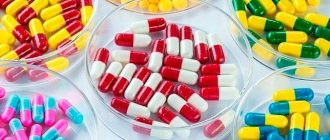
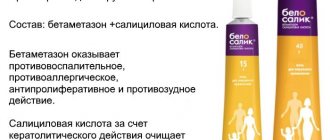
![Selenium [converted]-04-1.jpg](https://laram-halal.ru/wp-content/uploads/selen-preobrazovannyj-04-1-jpg-330x140.jpg)

